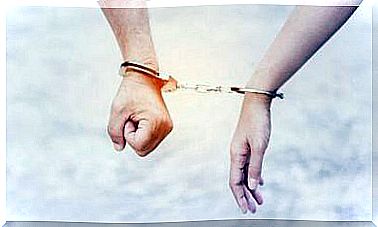Emotional Debts

Emotional debts have the same effect as material debts: they generate anguish as well as guilt and become an obstacle that ruins life.
The difference is that while financial debt is real, emotional debt is usually a figment of the imagination; this is the reason why they are confused and deceptive.
“The more open we are to our own feelings, the better we can read those of others.”
-Daniel Goleman-
An emotional debt arises when you make a commitment to yourself or to others to do a thing and that ultimately, you do not stick to that commitment.
Sometimes, the commitment is explicit because you verbalize it, but other times, it is woven unconsciously, without even knowing exactly what it consists of or what is expected of us since in practice we do not never committed to doing anything.
What is certain is that once you have accepted, consciously or not, that you “owe something” emotionally, a demand on yourself permanently takes shape and prompts you to hold on to your own. commitment.
Usually, if you do not honor this commitment, then messages will flood you that torment you and make you feel guilty.
You constantly tell yourself that you are committed to doing something, and it may even turn out to be a powerful force that conditions your actions and prevents you from being and achieving what you want.
The different emotional debts
Emotional debts can arise in unfinished situations which, for one reason or another, have remained unresolved.
For example, when you address offensive, unfair, or hurtful words to someone you love and they suddenly disappear.
This sudden disappearance can be explained by a death, or it is also possible that the person in question decided to move away from you without you being able to do anything about it.
All that’s left is the frustration of not having seized the opportunity to apologize, explain your behavior, or make peace.

There is another type of more complex and imperceptible emotional debt that arises from these commitments that are implicitly established with others and with oneself.
Maybe when you were a kid you thought you’d become a great doctor and save lives. It was your dream.
However, you have grown up, and your life has taken on a new rhythm. Your dream remained a dream and did not come to fruition, and as a result, you feel that you are disappointed in yourself and that you have betrayed a vital mission in your life.
It also happens that the father, the mother or another figure with whom one has forged a very close emotional connection involves a commitment.
Perhaps it was not you who wanted to become this great doctor, this magnificent ballerina or this famous sportsman, but this person.
For reasons that belong to you, you preferred to set other goals for yourself, but despite everything, you sometimes get worried and leads you to tell yourself that you are in debt to these figures you love.
Finally, emotional debts can also arise from negative or traumatic experiences that you may have had.
For example, when you were at school, a group of classmates would bother you and you would not react.
As the years have passed, you blame yourself for not standing up for yourself and feel like you owe yourself a debt.

All debts are paid …
When we accept that we owe something to someone, consciously or unconsciously, we are looking for a way to honor our promise.
It is as if we are “missing” or “wrong”, which will result in a series of negative perceptions and feelings about ourselves.
Emotional debts are easily expressed by sadness, and without there being any apparent reason to be sad, or by anxiety: an imprecise anxiety, the origin of which we are unable to determine the origin. but which nevertheless remains in us, latent.
You can also develop a certain irritability, a certain pessimism or even a certain jealousy, or become one of those people who are constantly angry and who are ashamed to do or not to do, to say or not to say something.
Ultimately, unpaid debt can filter into our lives in many different ways.
If there is an accumulation of emotional debts, then there will also be an accumulation of sadness, hatred, resentment or anguish.
If you are feeling overwhelmed by negative feelings but still cannot explain why, then it is best for yourself to examine the possible emotional debts that there may be in your life.

Is there a situation that you have found yourself in at one time or another that has not actually ended? Was there an expression of affection, rejection, or indignation that stuck in your throat?
Do you cultivate fantasies around what you could have been, or all of those things that you should have done that, however, you didn’t?
These are the kinds of questions you need to ask yourself. If you identify certain situations that have led you to feel emotional debts, then you must pay them off, concretely remedy what you can change, and symbolically repair what you cannot change.









